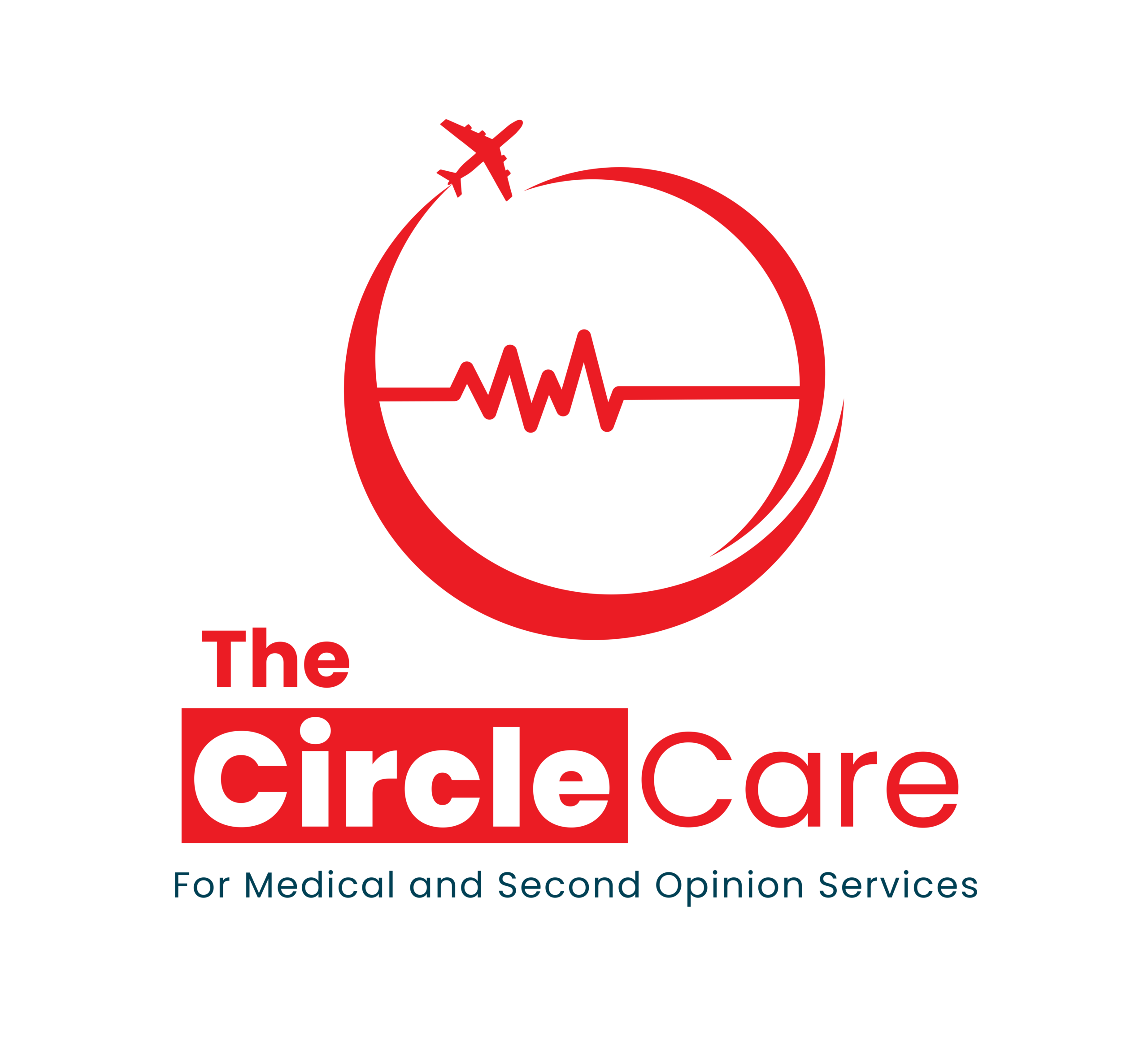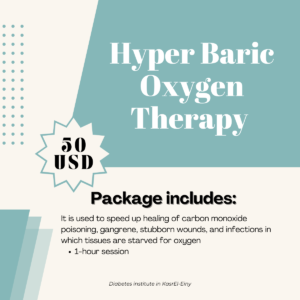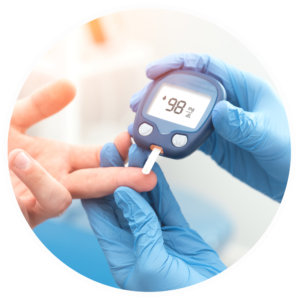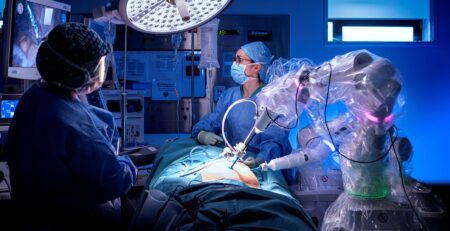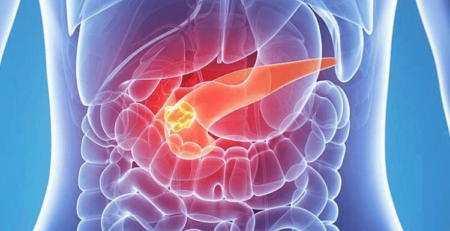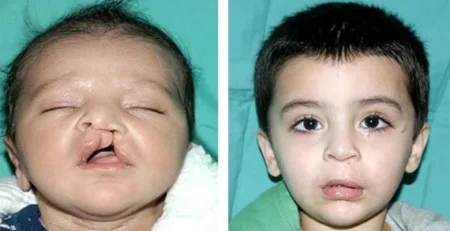Recognizing the Early Signs of pancreatic cancer
Pancreatic cancer, a highly lethal form of cancer, arises when malignant cells develop in the pancreas, an abdominal gland crucial for digestion and blood sugar regulation. Unfortunately, this type of cancer is often difficult to detect early as symptoms typically manifest only after it has spread to other parts of the body.
Nonetheless, understanding the early warning signs of pancreatic cancer is vital as it increases the chances of early detection, leading to better treatment options and improved outcomes. In Germany, renowned for its pancreatic cancer treatment, it is crucial to be aware of these signs and the associated costs.
Understanding Pancreatic Cancer
The pancreas, resembling a pear turned on its side, measures around 6 inches (15 centimeters) in length. It plays a key role in metabolizing sugar by releasing hormones like insulin and producing digestive fluids for efficient food digestion and nutrient absorption.
The Pancreas and Its Functions
The pancreas produces enzymes that break down food in the digestive system and also generates hormones, such as insulin, which regulate blood sugar levels. Positioned deep in the abdomen, it plays a vital role in maintaining overall health.
Types of Pancreatic Cancer
Pancreatic cancer encompasses two main types:
1. Exocrine tumors: These tumors account for approximately 95% of cases and develop in the cells responsible for producing digestive enzymes.
2. Endocrine tumors: Also known as pancreatic neuroendocrine tumors (PNETs), these tumors arise in the cells responsible for hormone production.
Origin of Pancreatic Cancer
Pancreatic cancer occurs when DNA changes (mutations) affect the cells in the pancreas. These mutations instruct the cells to grow uncontrollably and survive beyond their normal lifespan, resulting in the formation of a tumor.
Pancreatic cancer is a grave disease that affects a vital organ in the abdomen. Detecting it at an early stage significantly improves the chances of successful treatment. This article will discuss the early warning signs of pancreatic cancer and the importance of early detection.
Causes and Development of Pancreatic Cancer
While the primary cause of pancreatic cancer remains unknown, several risk factors have been identified. These include age, family history, smoking and tobacco use, obesity and poor diet, chronic pancreatitis, and diabetes.
The Benefits of Early Detection
Early detection of pancreatic cancer substantially enhances the chances of successful treatment. When diagnosed early, the cancer is often localized and more amenable to treatment. Patients with early-stage pancreatic cancer have higher survival rates compared to those with advanced-stage disease.
Challenges in Early Detection of Pancreatic Cancer
One of the main challenges in the early detection of pancreatic cancer is the lack of noticeable symptoms in the initial stages. By the time symptoms appear, the cancer may have already spread to other parts of the body, making it more challenging to treat.
The Role of Screening in Early Detection
Screening tests, such as imaging studies and blood tests, can aid in detecting pancreatic cancer before symptoms arise. However, no standardized screening test for pancreatic cancer currently exists, and screening is generally recommended only for individuals at high risk of developing the disease.
Common Early Warning Signs
1. Jaundice: A condition characterized by yellowing of the skin and eyes due to a buildup of bilirubin. Jaundice can indicate pancreatic cancer if the tumor blocks the bile duct in the head of the pancreas.
2. Abdominal Pain: Pancreatic cancer often causes severe or persistent pain in the upper abdomen.
3. Unexplained Weight Loss: Even with normal eating habits, unexplained weight loss can occur and is a common symptom of pancreatic cancer.
4. Loss of Appetite: Pancreatic cancer can lead to a decrease in appetite, likely influenced by factors such as pain and nausea.
5.Digestive Issues: Nausea, vomiting, diarrhea, and constipation can all be associated with pancreatic cancer.
6. Back Pain: If the tumor is located in the body or tail of the pancreas, back pain can be a prevalent symptom.
Risk Factors for Pancreatic Cancer
Several risk factors increase the likelihood of developing pancreatic cancer:
– Age: The risk of pancreatic cancer rises with age, with most cases occurring in individuals over 60.
– Family History: Having a family history of pancreatic cancer elevates the risk of developing the disease.
– Smoking and Tobacco Use: Smoking and tobacco use significantly increase the risk of pancreatic cancer, with smokers being two to three times more likely to develop the disease than non-smokers.
– Obesity and Poor Diet: Obesity and a diet high in fat and processed foods are linked to a higher risk of pancreatic cancer.
– Chronic Pancreatitis: Prolonged inflammation of the pancreas can heighten the risk of developing pancreatic cancer.
– Diabetes: Individuals with diabetes have a slightly increased risk of pancreatic cancer.
Leading Pancreatic Cancer Treatment Doctors in Germany
Prompt diagnosis and treatment are essential for combating pancreatic cancer. Germany, renowned for its advanced medical facilities and experienced doctors, is a preferred destination for pancreatic cancer treatment. Here are some of the leading doctors specializing in pancreatic cancer treatment in Germany:
– Dr. Med. Marek Budner: Highly experienced Surgical Oncologist specializing in breast diseases, mammary carcinomas, oncoplastic breast surgeries, and colposcopic diagnostics in the lower genital tract.
– Prof. Dr. Med. Karl-Jurgen Oldhafer: Surgical Oncologist focusing on treating biliary diseases, gallbladder tumors, liver diseases, and cirrhosis. Renowned for his research on transplantation and hyperthermic isolated liver perfusion (HILP) with tumor necrosis factor.
– Prof. Dr. Med. Michael Bartels: Highly experienced Surgical Oncologist specializing in hepatobiliary surgery, pancreatic surgery, minimally invasive procedures, colorectal surgery, and cancer surgery. A member of prestigious medical organizations, including the German General and Visceral Surgery Society (DGAV) and the European Society for Medical Oncology (ESMO).
– Prof. Dr. Med. Martin Strik: Surgical Oncologist with extensive experience in surgical oncology, minimally invasive surgery, oncologic surgery of the upper and lower gastrointestinal tract, pancreatic and hepatic surgery, and more. Certified by notable medical societies such as the German Cancer Society and the German Society for General and Visceral Surgery.
Pancreatic Cancer Treatment Cost in Germany
Pancreatic cancer treatment in Germany is known for its high success rates, advanced technology, and skilled medical professionals. However, it is essential to note that the cost of treatment can be substantial. The precise cost of pancreatic cancer treatment in Germany varies depending on factors such as the hospital, doctor, and specific treatment required. According to Vaidam Health, the estimated cost ranges from €18,000 to €45,000. It is advisable to consult a medical travel facilitator to obtain a more accurate cost estimate and plan accordingly.
The Circle Care’s Mega check up programs, are the highest demand , due to the very low cost in comparison to all Neighbor countries and long queues in other Europe , Canada, United states and the Middle East .
“We are proud to lead a campaign of “fixed cost, high quality” campaign, our case managers are dedicating a massive collective efforts to protect the patients/travelers, reflecting, The Circle Care’s value, and main purpose,” said Ahmed Saad, The Circle Care’s Communication Director.
If you’re looking for more information about our services or if you think it might be right for you, contact us today!
You can contact with us to provide you with the highest quality doctors, take a look at our Testimonials
We follow- up with you even after you return back to your home country, We even have remote follow-up services
I’m glad to inform you that, we have specialized doctors and they speak many languages (Arabic – English – Italian – German)
-
ATTRACTIVE PACKAGES-below 200 USD, BODY CONTOURING نحت الجسم مع جلسات متقدمة, MEN COMBO PACKAGES-مجموعات كومبو للرجال لتحقيق الكمال, REVIVE IV SUPPLEMENTS-حلول الإمداد الكاملة بواسطة IV, WINTER IN EGYPT-الشتاء في مصر, WOMEN COMBO FOR FLAWLESS BODY-مجموعة نسائية لجسم خالٍ من العيوب
CoQ10+ (Fitness Booster)
$70There is no AI review summary. -
ATTRACTIVE PACKAGES-below 200 USD, BEAUTY AND WELLNESS الجمال والعافية, BODY RECOVERY: KNEES & JOINTS-الركبتين والمفاصل, NEURO, BRAIN IMAGING AND SLEEP AID-تصوير الأعصاب وتصوير الدماغ والمساعدة على النوم, ROYAL CHECKUP-فحوصات لجميع الفئات العمرية, WINTER IN EGYPT-الشتاء في مصر
Hyper Baric Oxygen Therapy
$50There is no AI review summary. -
ATTRACTIVE PACKAGES-below 200 USD, BODY CONTOURING نحت الجسم مع جلسات متقدمة, MEN COMBO PACKAGES-مجموعات كومبو للرجال لتحقيق الكمال, WINTER IN EGYPT-الشتاء في مصر, WOMEN COMBO FOR FLAWLESS BODY-مجموعة نسائية لجسم خالٍ من العيوب
KneeWell (Healthy Knees Combo)
$125There is no AI review summary.<span id="zoho_button_ext" style="position: absolute;z-index: 99999999;width: 80px;height: 31px;background-size: 80px 31px;cursor: pointer;top: 0px;left: 0px"></span> -
ATTRACTIVE PACKAGES-below 200 USD, CHECKME LABS-مختبرات تشيك-مي, ROYAL CHECKUP-فحوصات لجميع الفئات العمرية, WINTER IN EGYPT-الشتاء في مصر
MEN ABOVE 40 YEARS CHECKUP
Original price was: $60.$50Current price is: $50.There is no AI review summary.<span id="zoho_button_ext" style="position: absolute;z-index: 99999999;width: 80px;height: 31px;background-size: 80px 31px;cursor: pointer;top: 0px;left: 0px"></span> -
ATTRACTIVE PACKAGES-below 200 USD, MEN COMBO PACKAGES-مجموعات كومبو للرجال لتحقيق الكمال, WOMEN COMBO FOR FLAWLESS BODY-مجموعة نسائية لجسم خالٍ من العيوب
RapidHair Revive – 2 Week Hair Program
$200There is no AI review summary.<span id="zoho_button_ext" style="position: absolute;z-index: 99999999;width: 80px;height: 31px;background-size: 80px 31px;cursor: pointer;top: 0px;left: 0px"></span> -
ATTRACTIVE PACKAGES-below 200 USD, BODY CONTOURING نحت الجسم مع جلسات متقدمة, EGYPT WELLNESS 360-مصر العافية 360, MEN COMBO PACKAGES-مجموعات كومبو للرجال لتحقيق الكمال, REVIVE IV SUPPLEMENTS-حلول الإمداد الكاملة بواسطة IV, WINTER IN EGYPT-الشتاء في مصر, WOMEN COMBO FOR FLAWLESS BODY-مجموعة نسائية لجسم خالٍ من العيوب
Slimboost (Weight loss booster)
$60There is no AI review summary.
